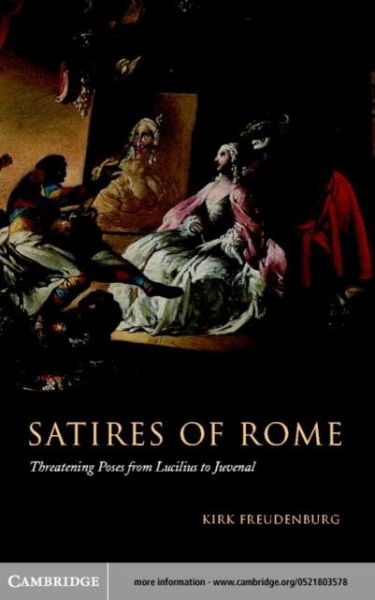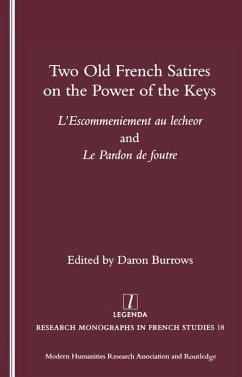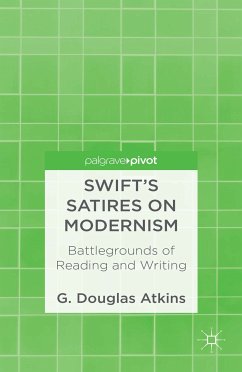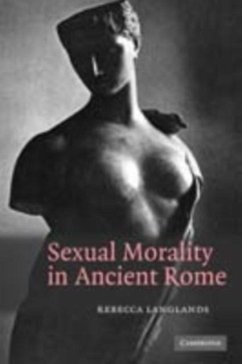
Satires of Rome (eBook, PDF)
Threatening Poses from Lucilius to Juvenal
Versandkostenfrei!
Sofort per Download lieferbar
32,95 €
inkl. MwSt.
Weitere Ausgaben:

PAYBACK Punkte
16 °P sammeln!
This survey of Roman satire locates its most salient possibilities and effects at the center of every Roman reader's cultural and political self-understanding. This book describes the genre's numerous shifts in focus and tone over several centuries (from Lucilius to Juvenal) not as mere 'generic adjustments' that reflect the personal preferences of its authors, but as separate chapters in a special, generically encoded story of Rome's lost, and much lionized, Republican identity. Freedom exists in performance in ancient Rome: it is a 'spoken' entity. As a result, satire's programmatic shifts, ...
This survey of Roman satire locates its most salient possibilities and effects at the center of every Roman reader's cultural and political self-understanding. This book describes the genre's numerous shifts in focus and tone over several centuries (from Lucilius to Juvenal) not as mere 'generic adjustments' that reflect the personal preferences of its authors, but as separate chapters in a special, generically encoded story of Rome's lost, and much lionized, Republican identity. Freedom exists in performance in ancient Rome: it is a 'spoken' entity. As a result, satire's programmatic shifts, from 'open' to 'understated' to 'cryptic' and so on, can never be purely 'literary' and 'apolitical' in focus and/or tone. In Satires of Rome, Professor Freudenburg reads these shifts as the genre's unique way of staging and agonizing over a crisis in Roman identity. Satire's standard 'genre question' in this book becomes a question of the Roman self.
Dieser Download kann aus rechtlichen Gründen nur mit Rechnungsadresse in A, B, BG, CY, CZ, D, DK, EW, E, FIN, F, GR, HR, H, IRL, I, LT, L, LR, M, NL, PL, P, R, S, SLO, SK ausgeliefert werden.













